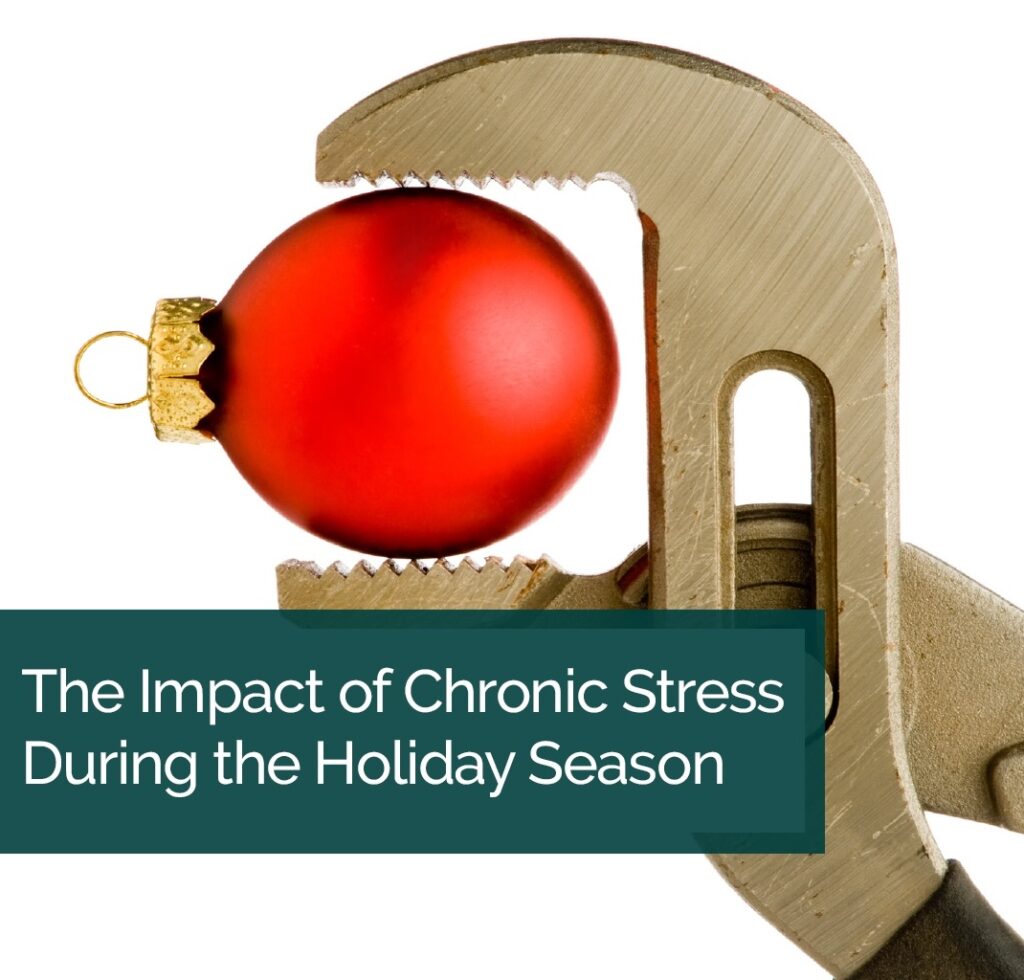How Stress Shows Up in Everyday Life
December is here! Do the concerns of hosting family, end-of-year work deadlines, and the multitude of pressures related to the holidays stress you out?
Stress can serve a valuable purpose, especially in moments of danger. Picture this: a lion is chasing you through the savannah. The surge of adrenaline sets your heart racing, your muscles tense up in preparation, and your focus sharpens to an intense level—these reactions are designed to help you escape swiftly and survive.
Fortunately, in our everyday lives, we don’t have to contend with lions. However, consider how your heart might race when an unexpected driver abruptly cuts you off while you’re navigating the bustling roads during the holiday shopping season. That sudden jolt can feel similar to facing a charging predator. In both scenarios, your body is reacting to stress, gearing up for immediate action.
What Happens Inside the Body During Stress
Our brains and bodies respond to negative stress, whether it originates from real-life threats or is merely a product of our imaginations. While short bursts of stress can be beneficial, acting as a natural alarm system to prepare us for challenges, prolonged stress can have detrimental effects on our health.
Acute vs. Chronic Stress
When we experience acute stress, our brains trigger a complex response, prompting the adrenal glands to release hormones that enable quick reflexes and decisive action.
However, when that stress becomes chronic, it can lead to serious health issues, affecting both mind and body.
The symptoms of chronic stress, such as persistent fatigue or anxiety, often intertwine with those of chronic pain, creating a cycle that can exacerbate both conditions.
Did You Know?
-
Chronic stress can lead to a host of health concerns, including anxiety disorders, depression, debilitating headaches, sleep disturbances, and even more severe issues.
-
Stress, pain, and inflammation are intertwined, all linked by the hormone cortisol, which is released during stressful moments.
-
Regular spinal adjustments might be beneficial in lowering your cortisol levels and alleviating stress.
How Chiropractic Care Supports Stress Reduction
Research indicates that chiropractic care, particularly through spinal adjustments, can help reduce stress levels and promote relaxation.
As we embark on the holiday season, it’s essential to monitor your stress levels closely. Make it a priority to visit Dr. Julie regularly, ensuring that your adjustments effectively relieve the heightened tension that can accompany this busy time of year.
Together, we can work to prevent stress from becoming chronic, allowing you to fully embrace and enjoy the joy and festivities of the holiday season.
Science Sources
-
Stress Management. Mayo Clinic. 2020.
-
Chronic Stress, Cortisol Dysfunction, and Pain: Stress Management. Physical Therapy. 2014.
-
Reduction of Cortisol Levels in a Patient Undergoing Chiropractic Management. JCC. 2020.

